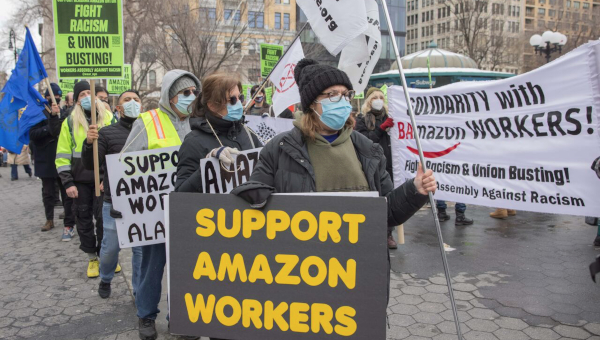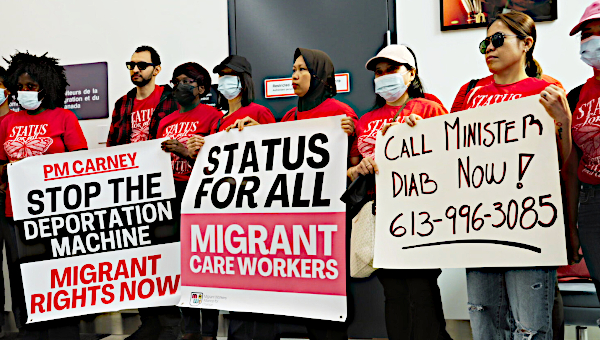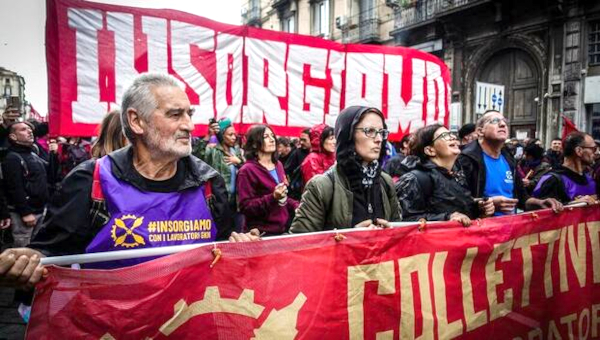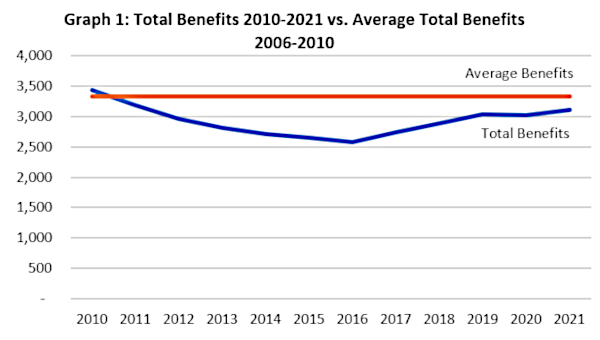BC Labour Convention Confronts Economic Crisis
The biannual policy convention of the British Columbia Federation of Labour, held in Vancouver from November 24 to 28, reflected a growing anger among unionized workers with
corporate attacks and deteriorating economic and social conditions in the province.
The collapse of world financial markets has yet to fully hit the province. But the decline of the U.S. economy, the onset of recession in Canada, and seven and a half long years of right-wing government under Liberal Party Premier Gordon Campbell have taken a heavy toll on working people and produced a determination that “enough is enough.” The convention set a course to campaign to replace the Liberals with a government of the New Democratic Party in the provincial election to take place next May.
But how will the election of the NDP put the province on a better economic footing, and what measures will it introduce to bring relief to working people? Does the labour movement have a particular role and responsibility to fight for working class interests, regardless of which of the two contending parties wins office? Convention deliberations showed that these questions are far from answered.
Capitalist assault on working people
In the province’s principal industry – paper and wood products – 10,000 jobs have disappeared in the past year. Entire towns have lost their economic mainstay. Since the election of the Liberals in 2001, 54 sawmills, paper mills and wood manufacturing plants have closed in the province, costing 20,000 jobs.
Several tens of thousands of health care workers saw their jobs privatized and their wages nearly halved by the Liberals following a defeated strike in 2004. Conditions inside the hospitals for patients and workers alike have declined sharply.
Poverty and homelessness have increased. The minimum wage has been frozen at $8 per hour since 2001, and welfare rates are well below the poverty line. British Columbia has the highest rate of child poverty in Canada for the fourth year running.
The province is a growing emitter of greenhouse gases, notwithstanding the government’s impressive “greenwashing” policies that have lured most environmental groups into its entirely undeserving fold.
The hardest hit by the Campbell government have been the original inhabitants, the two hundred thousand Indigenous people living within the provincial boundaries. Indigenous activists and organizations are exerting steady pressure on the government to tackle the appalling poverty in which most communities live and are demanding political and economic sovereignty. But the government signalled its response early in its mandate when it staged a racist plebiscite in 2002 setting restrictive guidelines for future negotiations. The vote passed with only one-third of voters participating.
Fighting Mood
Since 2001, workers have strongly challenged attacks on unions and social services. They have waged militant strikes. The province has twice come to the brink of a general strike – in May, 2004 when health care workers went on strike and were ordered back to work, and in October 2005 when teachers and workers at the telecommunication giant Telus were on strike.
Forestry workers have twice shut down the industry along the BC coast in an effort to resist company takeback demands – in 2004 and 2007.
The BC Fed convention indicated that more struggles of this type can be anticipated. The teachers’ union, for example, told delegates it was gearing up for job action to refuse the government’s plan to introduce standardized, province-wide testing of students. As union leaders and activists explained, such testing discriminates against students from poor families and stigmatizes schools that score poorly.
Workers in hard-hit resource industry towns explained to the convention that they are resisting the devastation of their local economic base. A trade union-based “Stand Up for the North” committee has been formed in northern British Columbia to oppose forest industry plant closings and demand improved employment insurance. Rallies by workers in Prince George and Mackenzie took place on December 11. More can be expected.
Indigenous sovereignty
One of the highlights of the convention was a signing ceremony of a “protocol of cooperation” between the Federation of Labour and organizations of Indigenous peoples in the province. Moving talks were delivered to delegates by Ed John of the First Nations Summit, Stewart Philip of the Union of BC Indian Chiefs, and Shawn Atleo of the BC Assembly of First Nations. A signing ceremony took place after their talks.
All three referred to the historic apology delivered by the federal government earlier this year for the policies of cultural genocide symbolized by the residential school system in Canada. They said that the apology would only have meaning if accompanied by effective action by government to redress injustices and restore Indigenous sovereignty rights.
The Protocol acknowledges mutual objectives including raising awareness of the rights and interests of First Nations, building consciousness of workers’ rights, “achieving social justice for First Nations in BC through joint initiatives to advance reconciliation and close social and economic gaps,” and collaboration on public policy issues of mutual concern.
Forestry in crisis
Delegates identified three reasons for the sharp decline of employment in the forest industry. One is the downturn in the U.S. housing industry. British Columbia softwood lumber exports to the U.S. dropped from $4.9 billion in 2005 to $3.5 billion in 2007, and the downward trend continues. Paper production and exports have also declined.
A second reason is deregulation of the system that allocates the right to cut lumber. Previously, tree cutting rights would be granted to companies on condition that the wood fibre be processed locally. The Liberals have loosened this coupling. One result has been a massive increase in the export of unprocessed logs – nearly doubled since 2000. Another has been escalating prices of tree cutting licenses as “decoupling” makes them attractive to speculators. Forest companies holding licenses are even trying to sell their lands to real estate interests.
A third reason offered for the job decline is the agreement signed between the U.S. and Canada in 2006 to resolve a long-standing trade dispute over competing accusations that lumber industries in the respective countries were receiving subsidies and favourable tax regimes.
In the convention discussion, many forest workers gave angry testimonies regarding the devastation of their jobs and communities. Yet no proposal was presented regarding what to do save for one – to vote for the New Democratic Party in the provincial election next May and hope that it will ease the crisis.
‘Capitalism to blame’
BC Federation of Labour President Jim Sinclair’s speech kicking off the convention explained many of the difficult challenges facing the working class in the province and the world. “Capitalism is to blame,” he said when summarizing the devastating collapse of the world financial system and its consequences.
But what to do? Several times in his speech, Sinclair returned to the theme, “If the corporations don’t clean up their act and start providing jobs and sustainable economic development, then we will step in and do it for them.” Why the “if”? Their system has proven itself spectacularly incapable of running the world. So what are we waiting for?
With the exception of the 2005 teachers strike, the major strikes of the past four years have been lost because the labour movement has not engaged in the level of solidarity action, including strikes, that could have brought victory. Instead, union officials simply point to electing the New Democratic Party as the way to solve our problems. Restricting labour’s strategy in this way weakens the labour movement. Gains cannot be won even under the most friendly of governments without strong pressure from labour’s ranks. Otherwise, the capitalist class uses its many levers of control to veto reforms that cut into their profits and domination.
The Liberal government has similarly ignored the needs of other sectors of the working population. For example, while the Federation of Labour has initiated an important movement for a rise in the minimum wage to $10 per hour, the provincial government and the industries that rely on cheap labour have adamantly refused it. Urgently needed increases to welfare rates have been similarly refused.
The Federation is also enmeshed in the financial debacle now looming over the 2010 Winter Olympics that will open in just over one year in Vancouver. It’s increasingly evident that the Games will leave taxpayers in British Columbia and Canada with a deficit of hundreds of millions of dollars. (For detail, see this author’s article on the recent municipal election in Vancouver at: www.socialistvoice.ca/?p=344.)
The unions and their political party, the NDP, supported the bid for the Games. They will have to deal with the wrath of working people angered over the cuts to government services that will result from deficits in Games financing.
Some new voices
A highlight of this convention was the increased role of young worker delegates. There were 90 delegates under the age of thirty, compared to just 38 at the last convention. They made their presence strongly felt on such issues as raising the minimum wage and fighting for better and affordable daycare. A report of the Federation youth committee laid out the following campaign issues:
- Winning a $10 per hour minimum wage and carrying this forward to win $11 per hour.
- Campaigning in high schools to inform students of their rights as workers.
- Organizing young workers into unions.
- Expanding a “Gen U” email and telephone network to link young workers and union members.
- Holding an annual Young Worker Conference sponsored by the Federation of Labour.
Harper government attack on union rights
The second-to-last day of the convention received dramatic news, while in session, that the newly elected minority Conservative government in Ottawa had just announced legislation that would ban the right to strike of federal government workers and remove the right of female federal government workers to appeal for pay equity measures. The news was all the more infuriating because it was contained in an “economic statement” by the government that made clear it would be doing nothing to address the economic downturn under way in Canada.
In response, Federation leaders introduced a resolution calling on the three opposition parties in Canada’s Parliament to vote down the government’s economic statement and form a coalition government that would address the needs and concerns facing working people in economic difficulty.
The resolution was discussed for 45 minutes and approved near-unanimously. The call for action to oust Harper was welcome; less positive was the proposal for the NDP to enter a Liberal Party-led government.
Only weeks earlier during a federal election, the NDP condemned the Liberal Party as a party of big business and the architect of destructive social and foreign policies. Now it turned on a dime and with very little dissent from the labour movement voted to join a government in which the Liberals would exercise the predominant influence.
The coalition government proposal now sits lamely in Ottawa, spurned by the Liberals as of the selection of their new national leader, Michael Ignatieff. The federal Parliament will reopen in late January. The government has withdrawn its anti-union proposals for now.
Independent labour political action
The convention’s surprising and near-universal support for a coalition government with the Liberals highlights the challenge before the labour movement today. Should we chart a course of political action that is independent of the parties of big business, Conservatives and Liberals alike? Or do we place our bets on political manoeuvring with parties or interests that are entirely hostile to workers interests?
More broadly, can the capitalist system be salvaged and should workers’ interests be sacrificed to achieve that?
These questions are being discussed and debated by growing numbers of workers, as discussions at this convention made clear. Socialists must immerse ourselves increasingly in these discussions and in the experiences of peoples who engage in struggle to resist the capitalist crisis. Our goal must be to find the most effective means to resist the capitalist offensive and defend our immediate interests as workers, all the while fighting for governments that can lead society out of the worldwide impasse that capitalism has created. •





